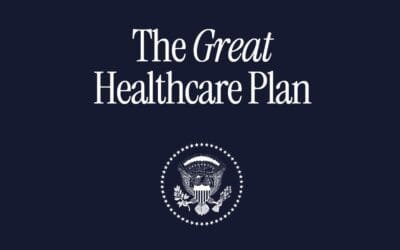Al Gore promised to provide prescription drugs “coverage for all” American senior citizens if elected president. Democrats applauded, and Republicans timidly committed to a plan that makes “coverage … available for all seniors.”
What would follow if such a commitment from the federal government to guarantee prescription drugs to all seniors were to become true? And if the right to prescription drugs for seniors were granted, how would it be possible to justify not extending it to others as well? After all, we all need prescription drugs, don’t we?
Let’s examine what would happen to the availability, quality, price and development of drugs if government “guaranteed” their supply to all of us.
At first, availability of drugs would be greatly increased. There is not a single product we consume that we wouldn’t consume more of if it were for free. Drugs are no exception.
Knowing that the federal government would pick up the bill, doctors and patients would have an irresistible incentive to make use of more drugs, creating a boom in demand. Moreover, patients would insist that doctors give them the best drugs, which are often the most expensive — and doctors would be more than happy to oblige: the drugs would be for free, wouldn’t they?
As soon as the government realized that the prescription bills were coming in faster than cold water into the Titanic, it would conclude, without much effort, that drugs are way too expensive and that doctors must be over-prescribing them. New regulations would be created — to solve the problems that result from the old regulations — some to control prices and some to control doctors.
Bureaucrats from Washington would start pressing the drug companies to cut prices. A government monopoly on the buying end of the prescription drugs’ market, added to its present marketing control of all drugs in the US, and to the power it already has to unleash antitrust actions, would give it enough power to force the drug companies to accept its terms.
To drug makers, lower prices would mean shrinking margins and even losses. They would be fools not to cut production, just as businesses cut production when government rendered low income housing unprofitable. Availability of drugs would start falling and government would have to start rationing drugs.
Bureaucrats from Washington would also start determining which drugs should be used and which shouldn’t; the conditions under which they should be used, and on whom. Yes, the bureaucrats would become our doctors.
How would the bureaucrats choose our drugs?
Bureaucrats usually have a fixed budget they must conform to. Their budget would never be large enough to pay for the best and most expensive of all drugs, for all patients, at all times. Besides, there is constant pressure from their bosses in Washington to cut on spending.
The bureaucrats’ choice for the cheapest alternatives would be inevitable, proceeding logically from the basic idea of availability for all at the lowest possible cost.
The best drugs, which are usually the most expensive, would find themselves without a market. Their production would slow down or stop altogether. Only the cheapest quality drugs would be widely available. Overall quality would fall, leveling at the bottom.
A demand greater than an available supply would explode the glass ceiling of government price controls or create a black market of drugs. One way or another, prices would go up.
Not only prices would go up, but they would reach levels higher than the ones practiced when the government started its intervention in the drug market. Look at what happened in government controlled housing! This is because the drug companies would now be producing fewer products at smaller quantities than before.
What would happen to drug development?
Drug companies would rapidly realize that there are no rewards for innovation. Research and development of drugs consume immense amounts of time, effort and money, and are many times unsuccessful. Drug companies would only undertake the enormous risks and investments necessary to create novel drugs if they could make enough profits to justify those risks. That’s the reason new drugs are usually very expensive as they enter the market. But the government would have no interest in buying very expensive drugs. Innovation would be over.
In sum, if government passes a law to “guarantee” prescription drugs for seniors, and eventually for all of us, we will see at first a boom in drug production and availability. Doctors, patients, drug companies and elected politicians will greatly profit in the short run from the new expanded market. But soon drug costs will explode and government controls will begin. In the long run we will all be losers. Drug development will come to a halt, drug availability will shrink, quality and diversity will fall, and prices will go up.
If we want to continue enjoying the great availability, variety, quality, and competitive pricing of prescription drugs we have today, we must reject the intervention of government in this market once and for all.




